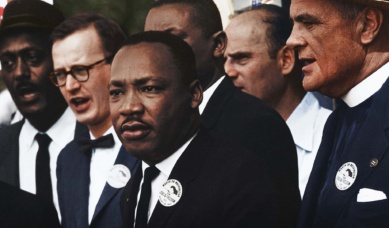- Blog, Presentation Training, Sales Training
5 Cognitive Biases Every Salesperson Should Master

Read this quick article to see how you can close more deals more frequently with cognitive bias.
In the dynamic realm of sales, the ability to decode and harness the intricacies of human psychology is a game-changer. Cognitive biases, those subtle yet potent patterns of thought that shape our perceptions and decisions, wield significant influence over consumer behaviour. By adeptly recognising and leveraging these biases, sales professionals can artfully navigate the sales landscape, elevating their success rates and forging stronger connections with customers. Here, we delve into five key cognitive biases every salesperson should grasp to elevate their sales skills.
1. Anchoring Bias
Picture this scenario: a customer walks into a store and spots a high-priced item. Even if subsequent options are more affordable, the initial sticker shock remains etched in their mind, influencing their perception of value. This phenomenon, known as anchoring bias, underscores the importance of setting the right initial price or presenting a compelling offer. By strategically positioning your product or service as the anchor, you can frame subsequent pricing or offerings in a more favourable light, nudging the customer towards a purchase.
2. Confirmation Bias
Humans have an inherent tendency to seek out information that validates their existing beliefs while disregarding dissenting viewpoints. In the realm of sales, confirmation bias can either work for you or against you. By proactively presenting information and testimonials that align with the benefits of your offering, you can effectively reinforce the customer’s decision-making process. Highlighting success stories and glowing reviews serves to bolster their confidence in your product or service, mitigating any lingering doubts they may harbour.
3. Scarcity Bias
The allure of scarcity is a potent force in driving consumer behaviour. When faced with limited quantities or exclusive offers, people are compelled to act swiftly for fear of missing out. Sales professionals can capitalise on this bias by instilling a sense of urgency or exclusivity surrounding their offerings. Whether through limited-time promotions, exclusive deals for early adopters, or highlighting dwindling stock levels, creating a perception of scarcity can galvanise customers into action, hastening their purchase decision.
4. Recency Bias
Recent events or information often hold greater sway over our perceptions than distant memories. In sales, harnessing the power of recency bias involves ensuring that your product or service remains at the forefront of the customer’s mind. Whether through personalised follow-up emails, targeted advertisements, or timely reminders, maintaining a consistent presence helps reinforce the customer’s interest and nudges them towards conversion. By capitalising on the immediacy of the moment, sales professionals can capitalise on this bias to steer prospects towards a favourable outcome.
5. Social Proof Bias
Humans are inherently social creatures, and we often look to the actions and opinions of others for guidance. This phenomenon, known as social proof bias, can be a powerful ally in sales. By showcasing testimonials, case studies, or endorsements from satisfied customers or respected industry figures, sales professionals can leverage the influence of social proof to build trust and credibility. Highlighting real-world examples of successful outcomes serves to reassure prospective buyers, alleviating any apprehensions they may have and nudging them closer to making a purchase.
By mastering these cognitive biases and integrating them judiciously into their sales strategies, professionals can elevate their persuasion prowess and enhance their success in closing deals. However, it’s crucial to wield these techniques ethically and transparently, with a focus on delivering genuine value and fostering long-term customer relationships. Ultimately, the true mark of salesmanship lies not in manipulation but in the art of building trust and creating meaningful connections with customers.
If you’d like to know more, CLICK HERE to visit our Sales Closing Techniques course.
Other related articles.
How to captivate your audience
5 Key Business Lessons From Hit Show ‘Bluey’
How to Close More Sales With Social Selling
Leadership Lessons from Obama’s Pivotal Moment
How to Build Buyer Trust – Part 2
Unlocking Sales Success: Harnessing AI to Close More Deals
5 Tips for your next sales discovery calls
5 Cognitive Biases Every Salesperson Should Master
What Made Martin Luther King Jr’s Famous Speech so Powerful?
How to Use Your Hands Effectively When Giving a Speech
Explorer Mike Horn’s Key for Productivity
Trevor Ambrose is an international training and coaching company located in the Gold Coast in Australia. We focus on sales and public speaking training.




























